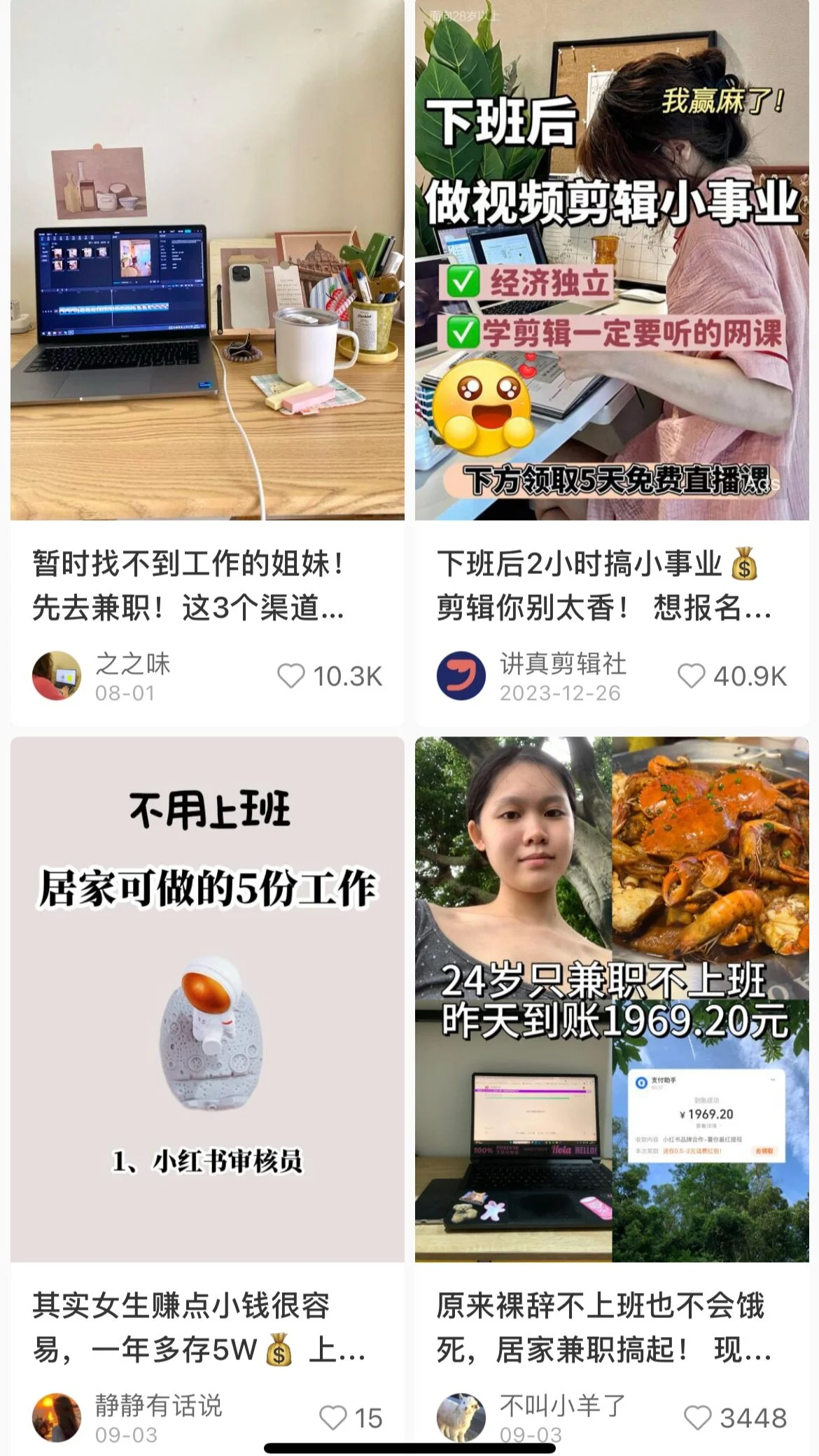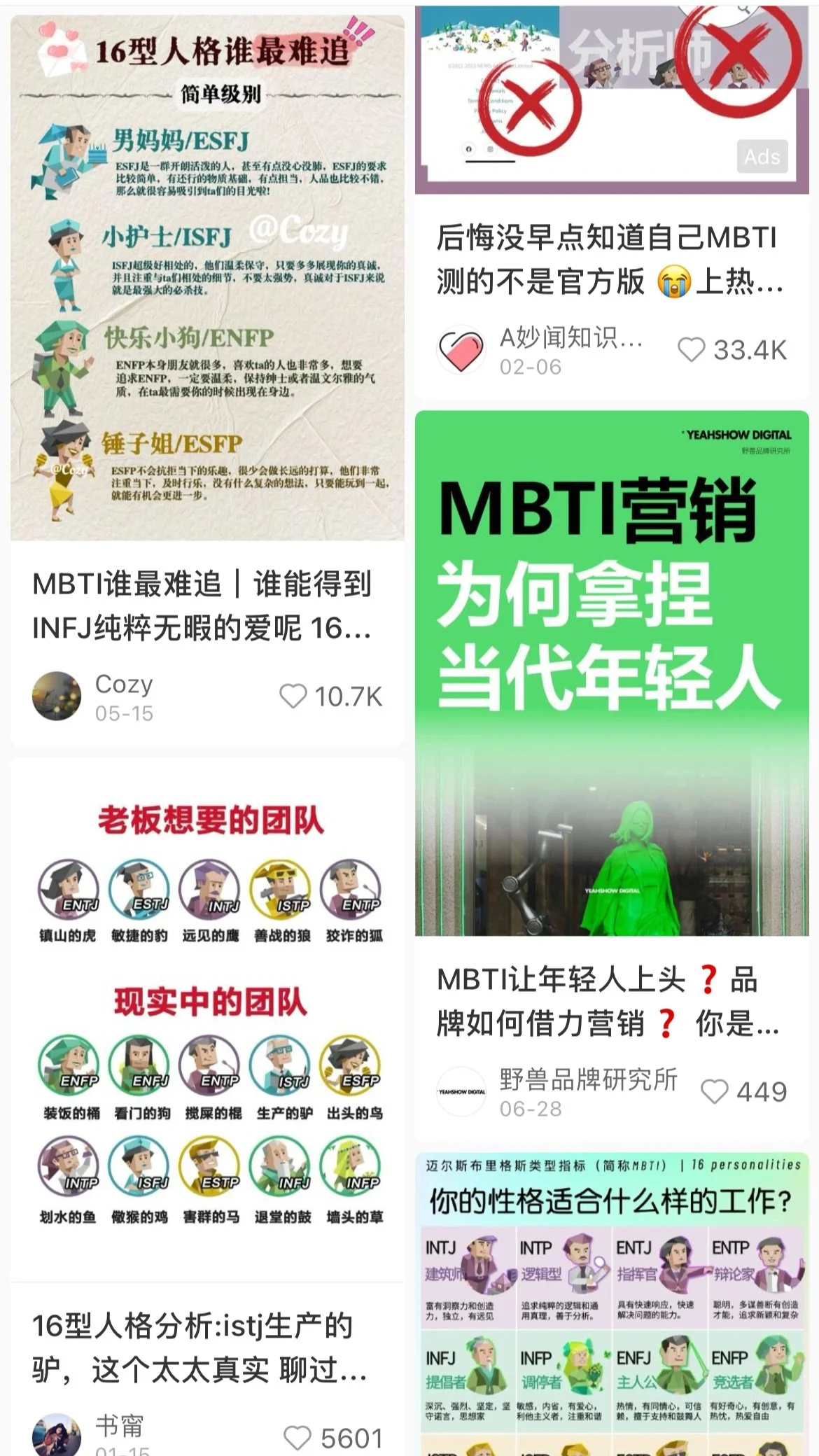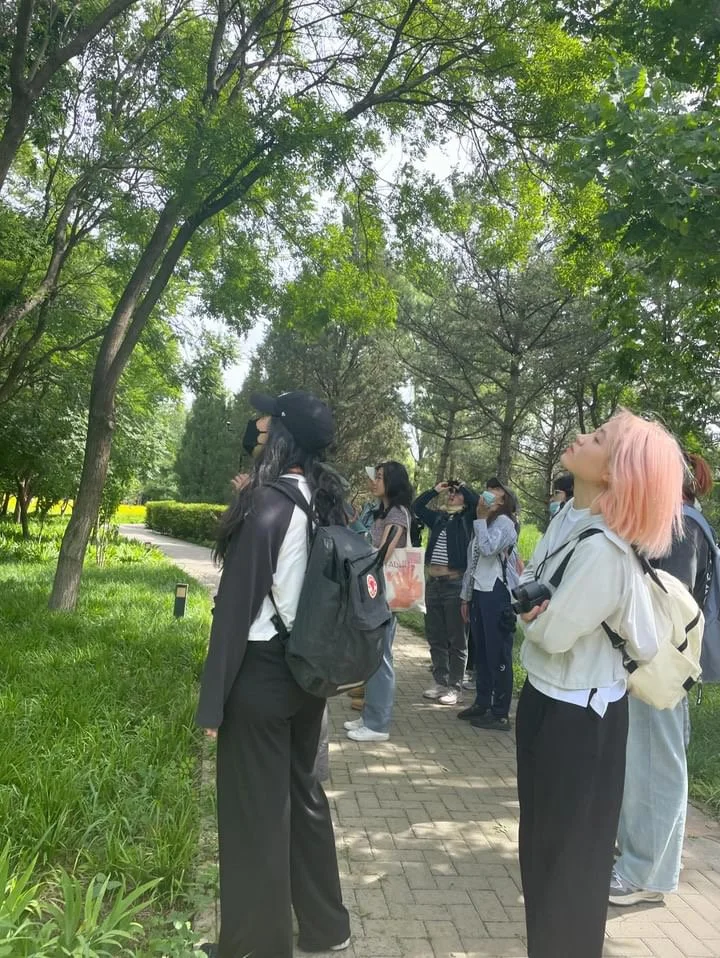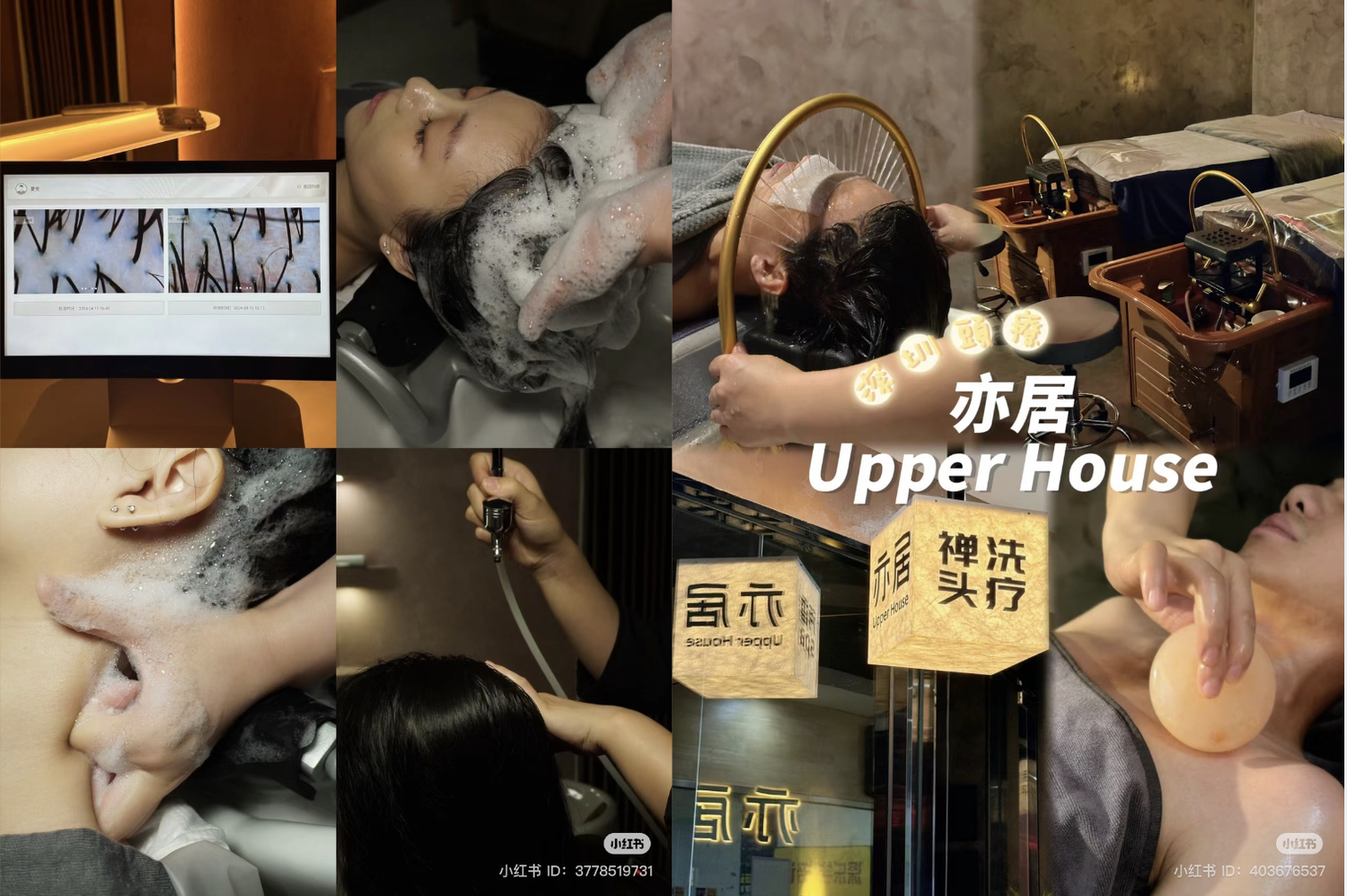As of June 2024, the platform boasted 300 million monthly users, with 70% of them actively searching on Little Red Book, averaging six searches per day per user.
In this article, Hot Pot China unpacks five trends mentioned in the report and explores how brands and executives can leverage them.
1. Search Topic: Work
-
Side Jobs
-
Resume
-
Street Trading
The top three search terms — side jobs, resume, and street trading — highlight a shift in how Chinese people are navigating their careers. While many are eager to improve their employment status, they are not ready for ‘luoci 裸辞,’ a term that describes resigning without any safety net.

The posts on the left share experiences and tips about side gigs.
Screenshot via Little Red Book
Hot Pot’s Hot Take
China’s work culture is known for its intensity. With unemployment rates climbing throughout 2023, people are anxiously seeking full-time jobs while feeling increasingly stressed by demanding roles.
Many are turning to part-time work or developing side businesses, and some eventually transition to full reliance on their side hustles.
The rise in street vending, following regulatory relaxations, underscores a broader trend of entrepreneurial spirit among young workers.
Adding to this trend, a popular category of influencers this year includes ‘quitting influencers 离职博主,’ who share their experiences of leaving full-time jobs to become digital nomads or take gap years.
These influencers, often former employees of major tech companies, offer insights into their transition and exploration of new opportunities, resonating with those considering similar career shifts. Check out our LinkedIn post about a British man who went viral in China after his two-year stint at NetEase Games.
2. Search Topic: Psychology
-
MBTI
-
Light vs. Dense People
These buzzwords revolve around personality types. MBTI, the Myers-Briggs Type Indicator, is a personality test that categorises people into 16 types.
Originating in the U.S. during World War II to help women to enter the workforce, MBTI has become a sensation among young Chinese.
Netizens have further developed their own personality categories: ‘light 淡’ and ‘dense 浓.’ Dense people are seen as outgoing and emotionally expressive, while light people embrace a more detached attitude.

The posts on the right explain the different MBTI personalities and how they’re applied in real life. Screenshot via Little Red Book
Hot Pot’s Hot Take
Personality types and digital personas play a significant role in the Chinese online landscape. Many Chinese internet users adopt pseudonyms, and in some cases, even the same generic username, to maintain privacy.
A striking example of this was in 2023 when ‘momo’ became a widely adopted social alias, allowing users to hide their identity, speak more freely, protect their privacy, and avoid online confrontation and harassment.
In this context, discussing personality traits enables individuals to express themselves in a nuanced and less vulnerable way while finding communities and like-minded people online. This trend reflects a growing desire for deeper self-understanding and connection in an increasingly digital world.
Brands can leverage this trend by creating products and marketing campaigns that cater to different personality types. By developing targeted content that resonates with specific personalities or engaging with online communities, brands can build a persona that aligns with these traits. This approach fosters a sense of belonging and personal connection with your brand.
3. Search Topic: Travel
-
Small Towns
-
Museums
Smaller cities and towns, such as Yuncheng 运城 in Shanxi province, have become trendy domestic travel destinations due to their slower pace, natural landscapes, and regional cultures.
Museums have also gained popularity, with over 12 million searches related to them on the platform.

China’s Gansu Provincial Museum has transformed the regional food specialty, malatang 麻辣烫, into toys. Image via Weibo
Hot Pot’s Hot Take
Little Red Book has evolved into a comprehensive travel resource, serving not just Chinese residents but also worldwide Chinese-speaking diaspora, expats, and travellers.
Users search for a wide range of information on the platform, from local tips to Wi-Fi passwords for European train stations. This year’s search trend underscores a growing interest in exploring lesser-known destinations and cultural experiences.
Brands can tap into this trend by partnering with local businesses and tourist boards in smaller cities and museums to promote unique travel experiences. China’s Gansu Provincial Museum has recently gained attention by transforming its gift shop, turning local food specialties into playful toys and recreating the experience of preparing street food, reminiscent of the popular Jellycat pop-ups.
Consider creating content that showcases the charm of these destinations or offers exclusive deals for visitors, thereby enhancing your brand’s presence in the domestic travel market.
Keep in mind the vast regional differences within China and tailor your approach to regional preferences and cultural nuances to help ensure your campaigns resonate effectively across diverse audiences.
4. Search Topic: Sports
-
Strolling
-
Home Workouts
When it comes to exercise, Little Red Book users prefer low-impact activities that can be done anytime, anywhere. Walking was the most popular exercise in the first half of the year.

Birdwatching is a great example of a gentle and accessible exercise option.
Image courtesy of Judy Zhu
Hot Pot’s Hot Take
The preference for gentle, accessible exercise options reflects a broader trend towards maintaining health and well-being with minimal time and effort. Home workouts and walking are appealing due to their convenience and adaptability to busy schedules.
Brands can promote fitness products and services that support home workouts and accessible outdoor activities. For instance, birdwatching as a leisure activity has surged in post-Covid China, attracting a younger, more diverse audience. It has also emerged as a powerful platform for women's empowerment and gender equality discussions.
Highlight the ease and benefits of incorporating these activities into daily life and consider partnering with fitness influencers to reach the target audience.
5. Search Topic: Fashion
-
New Chinese Style 新中式
-
Mamianqun 马面裙
-
Qipao 旗袍
Traditional Chinese aesthetics dominated Little Red Book in the first half of 2024. The most popular styles include New Chinese Style, which merges contemporary design and traditional Chinese aesthetics, and traditional dresses like Mamianqun and Qipao.
Hot Pot’s Hot Take
The resurgence of traditional Chinese fashion reflects a growing appreciation for cultural heritage and the blending of modern and traditional styles. This trend highlights a desire for clothing that combines elegance with comfort. Notably, flats and sneakers are more popular than heels on the platform, suggesting a shift towards more laid-back and practical looks.
Few non-Chinese brands have managed to successfully incorporate traditional Chinese elements into their products, even during Chinese New Year campaigns. Therefore, it's wise to proceed with caution if considering this aesthetic approach.
However, keeping an eye on how domestic brands are navigating this space can provide valuable insights. The goal is to find a unique path that stays true to your brand's identity while resonating with the audience.

New Chinese Style looks showcased on Little Red Book. Screenshot via the platform
Other trending search terms include emotions (relationship techniques, gifting), pets, home-cooking recipes for one, health management, and self-study courses (learning English). These trends signal that young Chinese consumers today are increasingly focused on emotional support, health consciousness, and career development.
How to Win?
To better understand the trends shaping the Chinese market and align your strategies accordingly, get in touch with our team at nihao@hotpotchina.com.
Related blog posts

